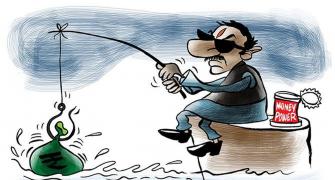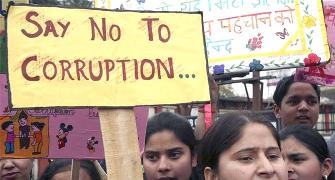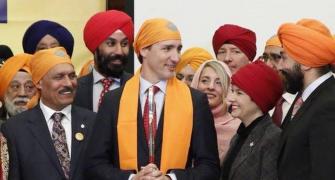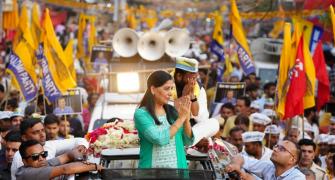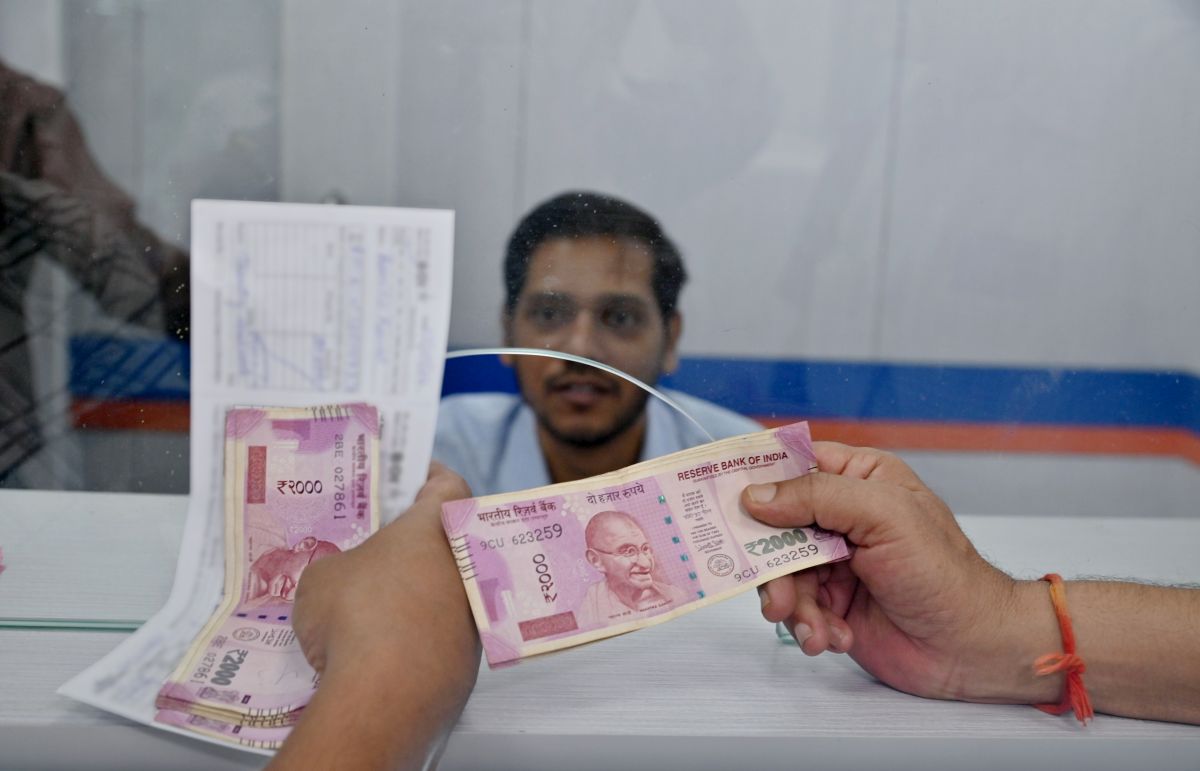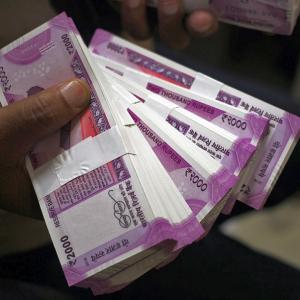The "opaque" electoral bonds scheme for funding political parties will "destroy democracy” as it promotes corruption and does not allow a level playing field between the ruling and opposition parties, the petitioners challenging the validity of the scheme told the Supreme Court, which on Tuesday observed election funding was a "complicated issue".

Advocate Prashant Bhushan, appearing for petitioner NGO Association for Democratic Reforms (ADR), told a five-judge Constitution bench headed by Chief Justice D Y Chandrachud that the electoral bonds scheme defeats the citizen's right to be informed about sources of funding of political parties, which is a fundamental right under Article 19 (1) (a) of the Constitution.
Commencing the arguments on a batch of pleas challenging the validity of the scheme, Bhushan said this "opaque" and "anonymous instrument" promotes corruption in the country and there is a good reason to believe that these bonds are being given by way of kickbacks to parties in power.
"...That it (electoral bonds) disturbs and indeed destroys democracy in this country because it does not allow a level playing field between political parties which are ruling and political parties which are in opposition or between political parties and independent candidates," he told the bench, also comprising Justices Sanjiv Khanna, B R Gavai, J B Pardiwala and Manoj Misra.
Bhushan referred to a chart and said as per the party-wise donations received through electoral bonds until 2021-2022 declared in the audit report, the BJP received Rs 5,271 crore, while the Congress got Rs 952 crore.
He also gave figures about the donations received by other political parties through electoral bonds during the period until 2021-2022, which included Rs 767 crore to the TMC, Rs 63 crore that went to the NCP's kitty and Rs 48 crore to the Aam Aadmi Party.
"The only significant contributions are all to the ruling parties either at the Centre or the states," he said, adding, there are no significant contributions to parties which are not in power.
"This will destroy democracy. Already our democracy was almost a money game. It has become a money game," Bhushan said.
Arguing that money power or unequal use of money power erodes the concept of free and fair elections, Bhushan said almost all electoral bonds have been received only by parties in power.
He said over 50 per cent of all such donations has been received by the ruling party at the Centre and the rest have gone to the ruling parties in states.
"Election funding is a major issue. It is not something very simple. It is a complicated issue," Justice Khanna observed during the day-long hearing.
Senior advocate Kapil Sibal, who appeared for one of the petitioners, said capital and influence go hand in hand, and the electoral process must be such that it provides a level playing field to all participants.
"Free and fair election is the basic structure of the Constitution," Sibal said, adding the moment one allows the corporate sector to donate, whether with or without transparency, it is inconsistent with the concept of a corporate sector which is in the business of doing business.
The CJI observed the apex court is not on the challenge to the legality of a law providing for corporate donations per se as that wider issue is not before it in this matter.
Sibal said the Indian Constitution is "citizen centric" and every scheme must have a legitimate object which is constitutional and the scheme must be proportionate to the object sought to be achieved.
Sibal said it is dangerous if the voice of people is drowned by the voice of the corporate sector.
Advocate Shadan Farasat, appearing for the Communist Party of India-Marxist, which is one of the petitioners in the case, said they are the political party which has taken a conscious decision not to accept any electoral bonds.
"The architecture and effect of electoral bonds scheme is not to reduce black money funding of political parties but to re-route the non-anonymous banking channel funding to anonymous electoral bonds," he said, adding that the "informational black hole" which the scheme creates goes against the concept of informed electorate under Article 19 (1) (a) read with Article 326 of the Constitution.
Article 326 of the Constitution deals with elections to the House of the People (Lok Sabha) and to the legislative assemblies of states.
Advocate Nizam Pasha, who appeared for one of the petitioners, said the electoral bonds scheme is manifestly arbitrary.
He said if security of the State is impacted if a foreign entity invests in the manufacturing sector in India, is it not impacted if Chinese investment is coming into a political party.
"It is a matter of policy. You are saying that a company in China, since China shares land border, they cannot bid for a contract but your case here is that they may have invested in electoral bonds," the CJI observed.
The hearing remained inconclusive and will continue on Wednesday.
The scheme, which was notified by the government on January 2, 2018, was pitched as an alternative to cash donations made to political parties as part of efforts to bring in transparency in political funding.
According to the provisions of the scheme, electoral bonds may be purchased by any citizen of India or entity incorporated or established in India. An individual can buy electoral bonds, either singly or jointly with other individuals.
Only the political parties registered under Section 29A of the Representation of the People Act, 1951 and which secured not less than one per cent of the votes polled in the last election to the Lok Sabha or a state legislative assembly are eligible to receive electoral bonds.
According to the notification, electoral bonds shall be encashed by an eligible political party only through an account with an authorised bank.
Attorney General R Venkataramani, in a statement filed before the top court in the matter, has said citizens do not have the right to seek information under Article 19(1)(a) of the Constitution about the source of the funds.
Holding that the electoral bonds scheme for funding political parties contributes to clean money, the top law officer has said there can be no general right to know "anything and everything", without being subjected to reasonable restrictions.
The apex court had on October 10 taken note of Bhushan's submission that the matter needed adjudication before the electoral bonds scheme opens for the 2024 general election to the Lok Sabha.
On January 20, 2020, the apex court had refused to grant an interim stay on the scheme and sought the responses of the Centre and the Election Commission to an interim application filed by the NGO seeking a stay on it.
The apex court had, in April 2019, also declined to stay the electoral bonds scheme and said it will accord an in-depth hearing on the pleas as the Centre and the EC had raised "weighty issues" that had "tremendous bearing on the sanctity of the electoral process in the country".

